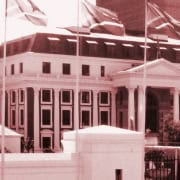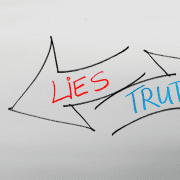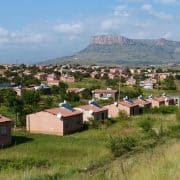|
Getting your Trinity Audio player ready...
|
PRESS RELEASE
The judgment handed down by the Constitutional Court (ConCourt) yesterday, regarding the IEC’s appeal against the Electoral Court order on the eligibility of former president Jacob Zuma’s candidacy in the upcoming elections, represents a win for civil society, says Corruption Watch (CW).
The ConCourt ruled that Zuma was not eligible or qualified to stand for election to the National Assembly (NA) based on his conviction and sentencing to 15 months imprisonment for contempt of court in 2021, after defying a court order to testify before the Zondo Commission. Section 47(1)(e) of the Constitution states that candidates are not eligible until five years after the completion of a sentence, with the result that the Electoral Court order is set aside and replaced, dismissing the former president’s appeal.
In its submission as amicus curiae in this matter, CW argued that a person convicted and sentenced by a court is disqualified from being a member of the NA, which disqualification comes into effect immediately after sentencing. It is the fact that a sentence has been imposed, and not the sentence served, that applies. The organisation also highlighted the importance of the correct application of 47(1)(e) as a matter of public interest, emphasising that its purpose of disqualification is aimed at maintaining the integrity of the democratic regime, ensuring that members of the NA respect the rule of law and are not serious violators of the law. Allowing such persons to stand for office would subvert the purpose of the constitutional provision and would allow for an arbitrary distinction between individuals convicted by the ConCourt and the lower courts. These points are evident in the judgment.
“It is critical that our elections laws are subject to a reasonable interpretation,” says Karam Singh, CW executive director. “The initial ruling of the Electoral Court was incorrect, and it was therefore essential that this be corrected by our apex court. There has been so little accountability for state capture, heightening the need for consequences to flow from former president Zuma’s failure to respect the Zondo Commission proceedings. It remains disappointing and concerning that charges emanating from the Arms Deal have not been concluded and we await the start of that trial in 2025.”
The organisation praised the soundness of this judgment, its careful and thorough review of all arguments leading to a solid conclusion, and its demonstration of the strength and independence of the South African judiciary, which is an important protector of the Constitution. The contributions of the four amici curiae – CW, the Council for the Advancement of the South African Constitution, the Ahmed Kathrada Foundation, and the Black Lawyers Association – also emphasises the vital role that civil society continues to play in protecting the health of the democracy.
For media enquiries contact:
Oteng Makgotlwe
Cell: 076 473 8336 E-mail: OtengM@corruptionwatch.org.za








